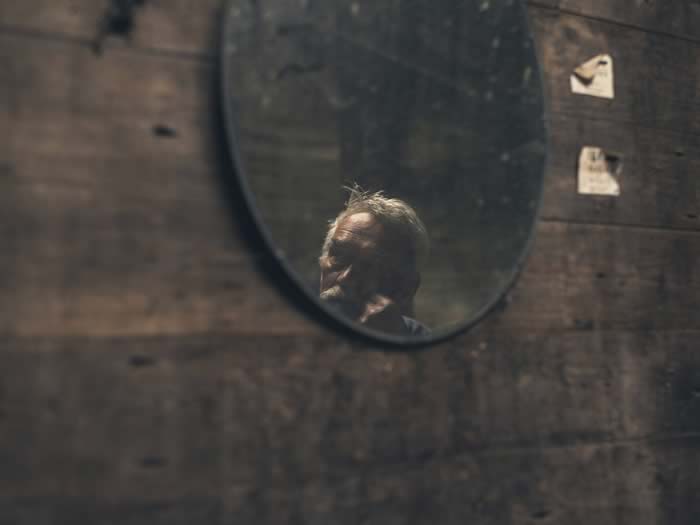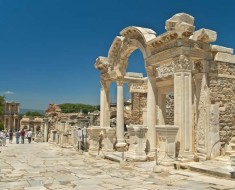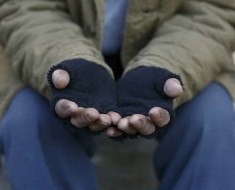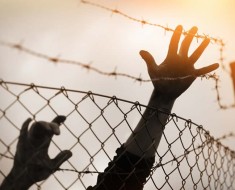Readings : Psalm 25
Luke 18:9-14
How we feel about ourselves and how we feel about others determines how we live and how we behave.
And both can be a mystery to us. I was struck by this phrase from the Luke reading where Jesus tells a parable for‘ some who trusted in themselves that they were righteous and regarded others with contempt’. This business of sorting out who we are to ourselves, and in relationship to others, isn’t easy.
1. Who I am
It’s not good therapy for them and exceedingly boring for the people who listen to them or who try not to listen, when old people keep talking about being old.
But in fact the longer you live and try to maintain contact with the rest of your life, the conundrum of your own personality – who you think you are – may increase rather than diminish. Perhaps it’s only the young who have sufficient confidence about themselves not to question who they are. But only for a time. Adolescents can be in as much a pain as the ancients. It’s when the knocks come that you begin to wonder who you are and why you act in the way that you do, and where you belong in the spectrum of society; or even in paranoid moments, who is for you and who is against you.
A lot of the psalmists – on this criteria – must have been old for they were always going on about who they were and – of course – who God is, and how the two can cope with each other, and what is to be done with those others who don’t fear the Lord, and deserve to come to a sticky end.
The psalmists feel crushed by the people who are against them and tantalised by a God whom they constantly call upon to come to them and sort out their enemies, but who never seems to be there when he is wanted. And their big question is what is man that God is ‘mindful of him’ ‘Who am I that I matter to you and yet your apparent absence makes me feel less than myself’? The psalmists struggled for personal identity and for divine approval, centuries ago and in cultures lost to us ; and yet to read them is one way into this search for myself, for who I am and where I belong. ‘Turn to me, and be gracious to me, for I am lonely and afflicted. Relieve the troubles of my heart, and bring me out of my distress’ (Ps.25:13,14)
There is a strong element of self-denial in the Christianity we inherit. ‘Deny yourself, take up your cross and follow me’ Jesus said. But the denial – I imagine – is not about pretending that you are of no significance but that your existence is so important that it can contribute to the wellbeing of others, to practicing the ideas of Jesus, to the joy of life around you. I imagine (what do you think?) that God doesn’t want people around who have become nobodies for Christ’s sake, but rather people who have found themselves in living with his sort of purpose and more for the pleasure of others than for self-indulgence. There is this sense implicit in the teaching of Jesus that by throwing yourself away you can begin to find yourself. And that means I think that you can only find yourself in relation to others, to their needs and interests. In their service , even. It may be as we become conscious of the so called ’outsiders’, that we begin to get inside our real selves.
Which is quite different to how we normally behave. It’s the ‘insiders’ that interest us. We define ‘the others’ as the people who are like us, our own circle of friends and acquaintances, our own experience of life. ‘The others’ then become the people we feel at ease with, and who are part of our natural social environment. It can be a very narrow circle of familiarity which surrounds us and helps to identify us. And where we feel safe.
The ‘usual’ is what I am familiar with – the people I know, the local church I belong to, the family I am part of, the style of life I have chosen, the films I see, the TV programmes I watch. Who I vote for at General Elections. Even the supermarket, which I know my way about in, and where the same sort of people as me like to shop (Coop O.K. but Waitrose too posh).The segments of society which I know and understand, and where I feel secure. Just as a local church can define itself by where it is and what it does, by its familiar characters and well established customs, so we define ourselves by what to us is usual.
Jorgen Moltman is a German theologian who is widely honoured for the depth of his thinking and the range of his interests. (And for the number of books he has written! – I’ve counted 23 in his bibliography and there are loads of lectures delivered in various places, and books written about him and his thoughts. Someone has estimated that up to 1985 there are 528 titles of publications in his name. And there have been more since). Many regard him as a theologian of exceptional humanity and insight, and I have been reasding him again. ‘For me’, he writes. ‘theology was, and still is, an adventure of ideas. My whole concern is to stimulate other people to discover theology for themselves….and to set out along their own paths.’ He is obviously not the sort of Christian thinker who says ‘this is what you must believe and there’s no room for disagreement’, but one who honours individual freedom.
I remember reading a series of talks by him, which were given in the main to non-Christians. One of them is called ‘The knowing of the Other, and the Community of the Different’. He points out the limitation of likeness – each of us gravitating to the people who are like us. ‘If in social life, like draws only to like, is the result in society not one of total stultification? The rich for themselves, and the poor for themselves, the whites for themselves and the blacks for themselves, and the women and the healthy and the disabled all for themselves – we remain with the people who are like us, and no one knows ’the others.’
2. So what about the others who aren’t part of what for us is usual, who aren’t at all ‘like us’?
Confession time: we are quite pleased that we aren’t like a lot of people whom we may disapprove of. None of us here have ambitions to be drug addicts, none of us want to be poor, none of us want to join gangs for whom violence is a way of life, none of us want to be rich and nasty (though perhaps we would like to have a go at being rich and nice), none of us want to be the Prime .Minister, none of us want to swear like a trooper even if it might reduce the tension sometimes, none of us want things to be so different from the usual that we would hardly recognise ourselves. And hopefully none of us want to share the intimate details of our private life like the woman with a mobile phone on the train I was travelling in the other day who spared nothing from the rest of us. We could make a great long list of people we are glad we are not!
But having made the confession that there are a lot of the ‘others’ we don’t want to associate ourselves with, and have actually been known to think ‘Thank God I’m not like them’ – we do have to move on, to another way of being human that is more than the usual, more than like liking like. And perhaps doing that goes to the heart of what it means to be a follower of Jesus, the man who was like no one else and who invites us to join a new humanity based on neighbour-love rather than self-love.
Everything is about challenge today – political, economic and particularly environmental –as members of the human race we are actually creating a potentially disastrous future for our earthly home unless we take global warming seriously and do something about it. But here’s a special challenge perhaps for us, for the Christians, for the latter-day disciples of Jesus Christ who, because he was the man for others, leads us out of our limited social definition into a broader and richer one. To stand back before we make instinctive judgements that may lead to separation and division. The challenge is to take difference seriously, the different people, the different values, the crazy wild confusion of the human family, but not to judge it so much and to love it a bit more; no, much more.
Still worried at the danger in his life and the apparent silence of God, the psalmist concludes his appeal to God in this way:
‘O guard my life, and deliver me;
Do not let me be put to shame, for I take refuge in you.
May integrity and uprightness preserve me, for I wait for you’.
God is our ultimate safety, and he knows us better than we know ourselves, helps us to feel safe amongst those who are like us and who we don’t have to explain ourselves to, because we are known and we know them. But it’s when we live in the danger of difference, amongst people who are not like us at all, that we may be the best of ourselves and the ‘integrity’ the psalmist seeks, the wholeness of our life, can enable us to be servants of the Lord, as we long to save souls and save the planet.





